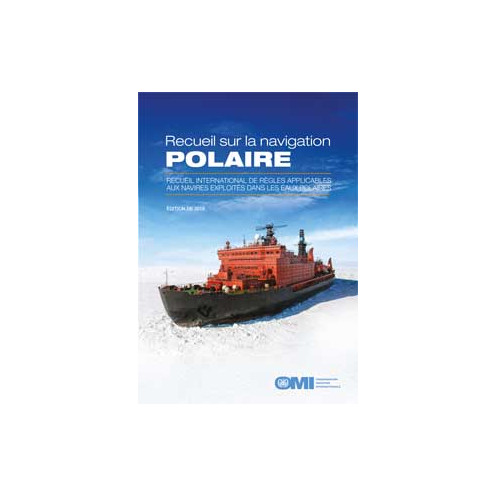




Fiche technique
 Paiements 100% sécurisés
Paiements 100% sécurisés








Livre en langue française.
Ce livre existe en version papier et en version numérique dans un format vérouillé à lire avec la liseuse de l'OMI (gratuite).
The International Code for Ships Operating in polar Waters has been d'veloped to supplement existing IMO instruments in order to increase the safety of ships' operation and mitigate the impact on the people and environment in the remote, vulnerable and potentially harsh polar waters.
The Code acknowledges that polar water operation may impose additional d'mands on ships, their systems and operation beyond the existing requ'rements of the International Convention for the Safety of Life at Sea (SOLAS), 1974, the International Convention for the prevention of pollution from Ships, 1973, as modified by the protocol of 1978 relating thereto as amended by the 1997 protocol (MARPOL), and other relevant binding IMO instruments.
The Code acknowledges that the polar waters impose additional navigational d'mands beyond those normally encountered. In many areas, the chart coverage may not currently be adequ'te for coastal navigation. It is recognized even existing charts may be subject to unsurveyed'and uncharted shoals.
The Code also acknowledges that coastal communities in the Arctic could be, and that polar ecosystems are, vulnerable to human activities, such as ship operation. The relationship between the additional safety measures and the protection of the environment is acknowledged'as any safety measure taken to reduce the probability of an accident, will largely benefit the environment.
While Arctic and'antarctic waters have similarities, there are also significant d'fferences. Hence, although the Code is intended to apply as a whole to both Arctic and'antarctic, the legal'and geographical d'fferences between the two areas have been taken into account.
The key principles for d'veloping the polar Code have been to use a risk-based'approach in détermining scope and to adopt a holistic approach in reducing identified risks. It will come into effect only in 2017 for new ships and 2018 for existing ships.